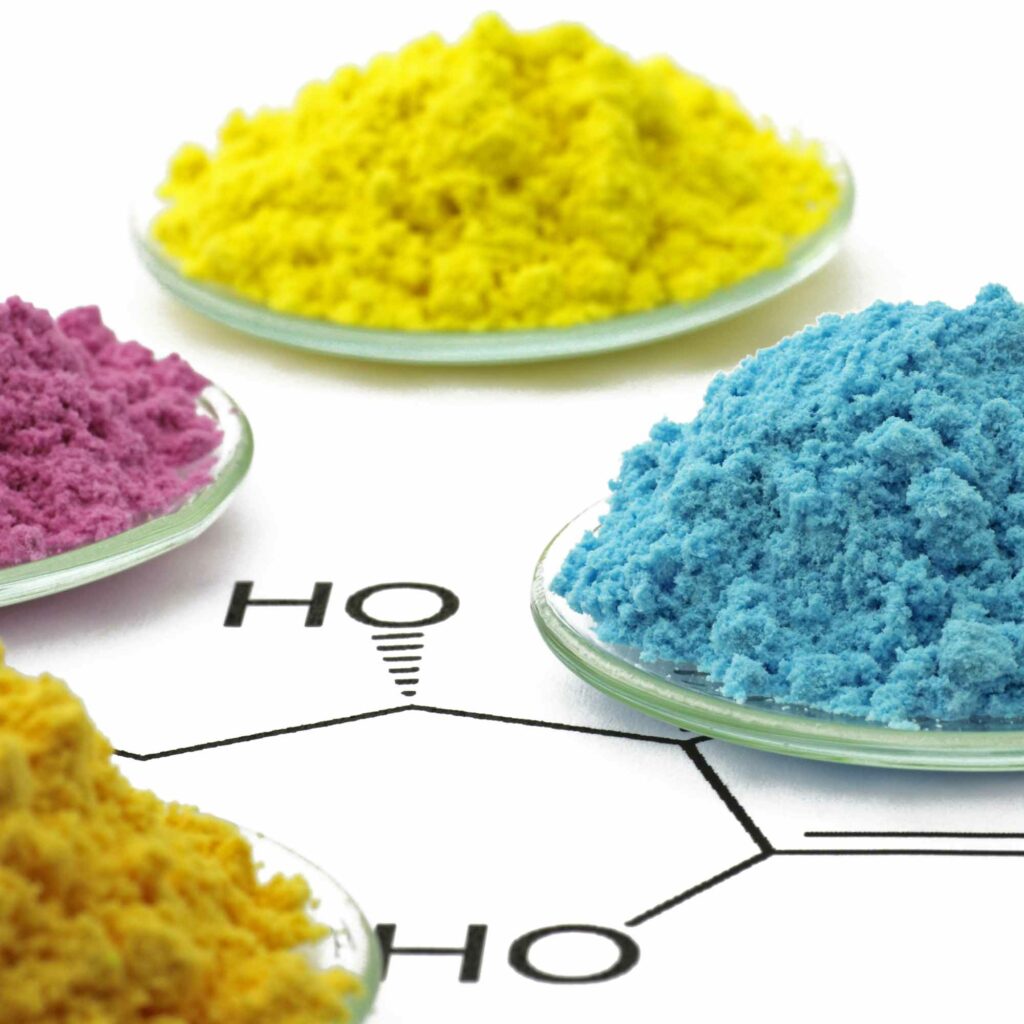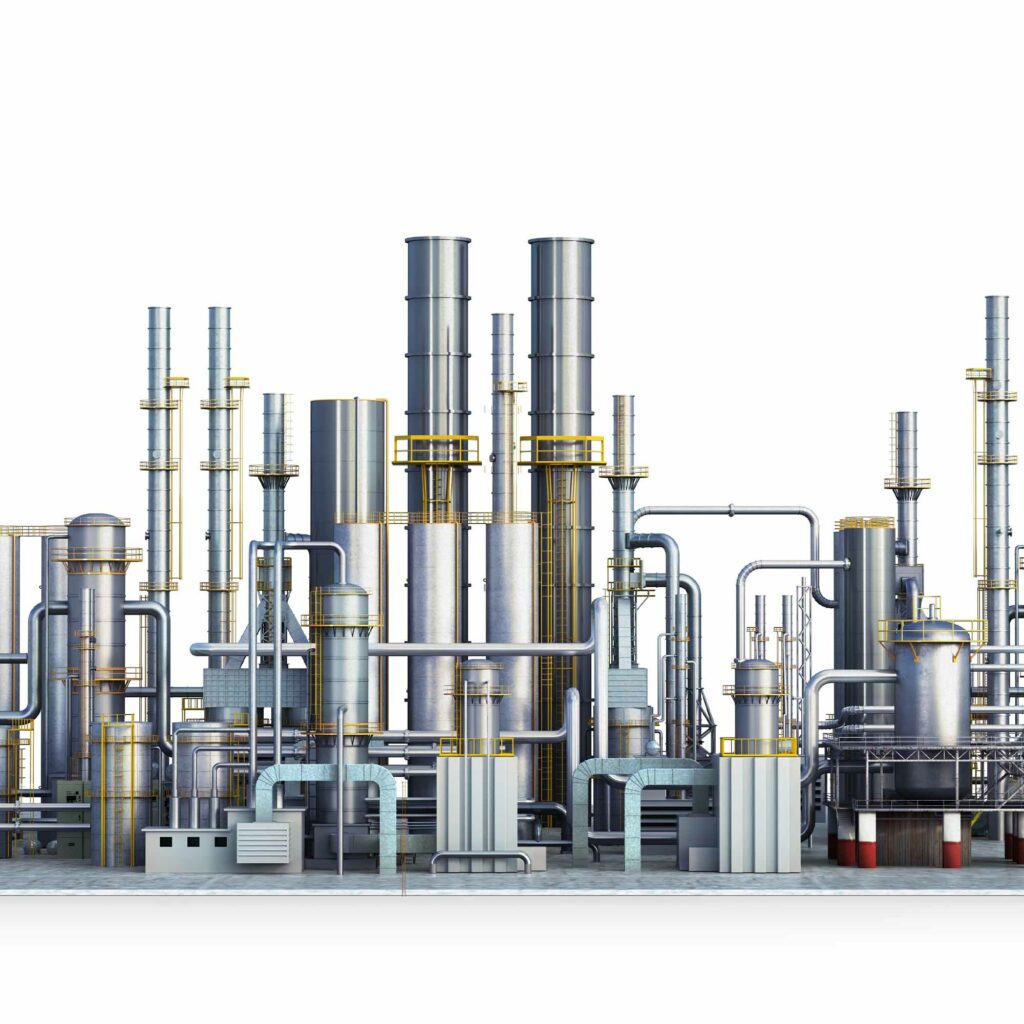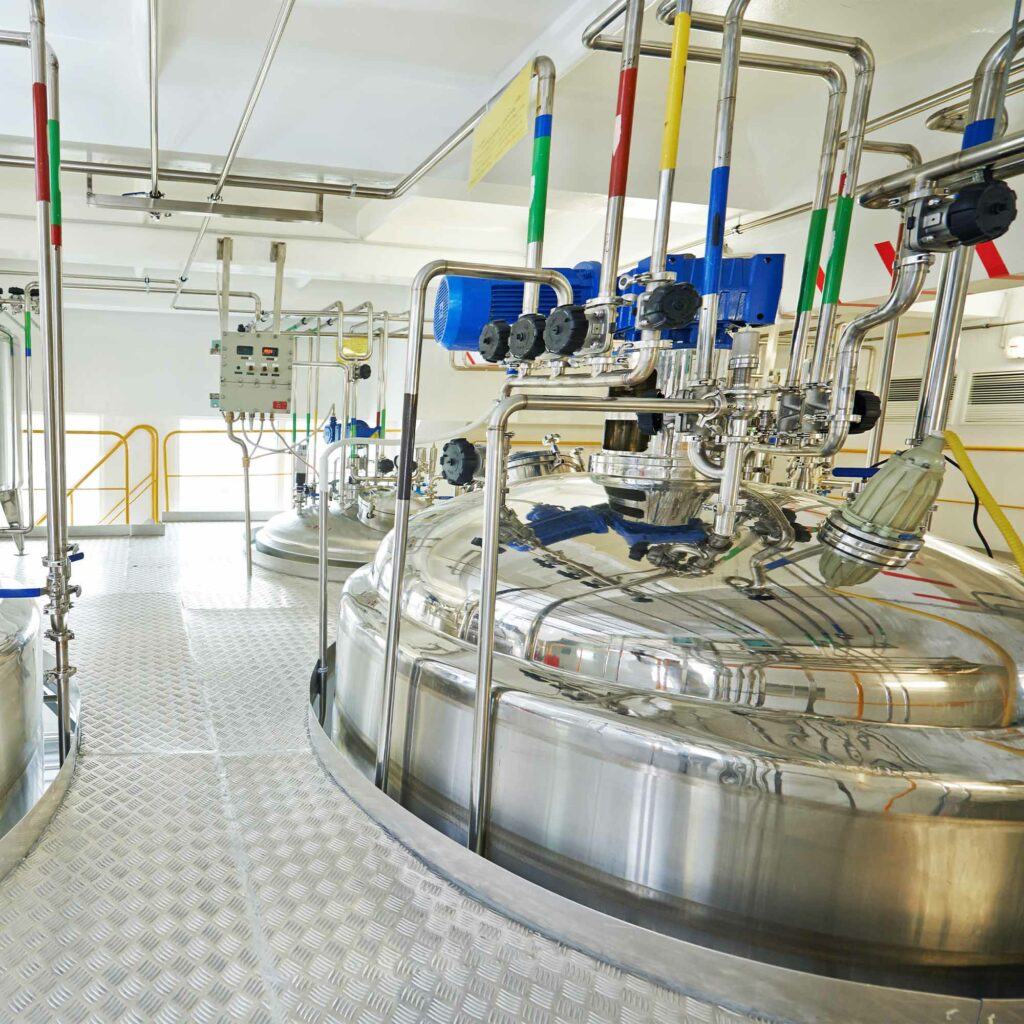Markets
Basic Chemicals
In the production of raw materials (base materials) for the chemical industry PTFE is no longer indispensable. Basic chemicals distinguish themselves from other chemical products by their versatility and its large production quantity. Of chlorine and sodium hydroxide solution of hydrochloric acid and hydrogen is produced, for example, to be subsequently re-processed to further products. Mainly acids and alkalis make here the use of PTFE-lined components indispensable. Here raw materials such as industrial gases, dyes and pigments, inorganic and organic raw materials, fertilizers and nitrogen compounds, plastics and synthetic rubber are produced in primary form, to name only a few product groups. Here again, the almost unlimited durability of the plastic PTFE proves indispensable means for lining of piping systems and fittings to ensure a safe and stable production.

Specialty Chemicals
In the production of specialty chemicals, the transition from basic chemicals is mostly fluent. Here mostly the effect, not the chemical composition forms a part, which the products are mostly for special applications, many times also custom manufactured. This is mostly to small production volumes and often discontinuous production. Typical products here are mostly additives such as flame retardants, light stabilizers or additives for food. The pharmacy also counts sometimes for specialty chemicals. Again, not only resistance but purity and function play an essential leading role. Large amounts do not have great importance here; it is usually complex syntheses in several production steps. Examples of this detergent, adhesives, sealants, coatings and electronic products may be mentioned.

Chlorine Chemistry
Chlorine is the basic stuff of most chemicals which are produced. The starting material chlorine and its mostly organic compounds usually serve as an intermediate to derive for example to produce medicines, plastics and pesticides as well as colour pigments, so therefore it is an important synthesis raw material. Here, chlorine compounds prove mostly as extremely aggressive and toxic, which is why with conventional components in the production usually does not get further in their preparation and processing, at least traces of water in the chlorine gas are even high-alloy steels such as Hastelloy and Monel only limited use. Here PTFE, PFA and PVDM prove extremely resistant to chlorine and its mostly organic compounds. However, the precise knowledge of these resistant materials is a prerequisite to keep permeation, pressure- and temperature resistance, and flow behaviour under control.

Petro Chemistry
As the name suggests, it is here mostly oil and natural gas, which is used as starting materials for chemical products. As a result from the lack of natural products such as coal and rubber, artificial substitutes had to be created. Because the raw material is naphtha, petrochemical companies settled mostly beside refineries. Here, substances produced during steam reforming as carbon monoxide and hydrogen for the production of methanol, ammonia, acetic acid and other hydrogenation processes. Also suitable herein is PTFE and its further-developed plastics project for onshore and offshore applications in the oil and gas companies, such as piping, valves and different accessories. Especially in the petrochemical industry, there are usually methods in which high temperatures are necessary. PTFE retains its excellent material properties even when exposed to high temperatures and aggressive fuels. Even in heat exchangers increasingly PTFE used.

Pulp and Paper Chemistry
In the pulp and paper chemicals production usually starts from cellulose (a polysaccharide mainly from wood), so-called fillers (e.g. kaolin, asbestos, gypsum, barite, titanium dioxide, etc.) and glue substances (resin soaps, fixed with aluminium or chromium sulphate alums), water glass and bone glue. In addition to conventional milling (stone process), there is mainly the pulping process, whereby in extreme heat the wood chips where cooked with the addition of water and then be ground. In pulp production, there are two methods, once the sulphite and the second the sulphate pulp. Sulphite pulp produced by cooking wood chips with calcium or magnesium bisulphite with sulphurous acid, sulphate pulp produced by cooking wood chips in caustic soda with sulphide content. Here come back highly aggressive fluids and extreme heat together, as well as in the processing of pulp and paper, for which PTFE and its refined Fluoropolymers are due to their chemical and physical properties suited.

Food Chemistry
In food chemistry not only diverse aggressive raw materials occur, it is here mostly to extreme purity and hygiene, as there are huge standard rules (especially the FDA). The low friction coefficient (and hence the smooth surface) keep contamination to an absolute minimum. This very important property of PTFE is the reason why the products are extremely well suited for the food- and packaging industry. High temperature resistance and resistance to more aggressive cleaning agents and also the steam sterilization under high pressure are guaranteed by PTFE. PTFE is capable of curing not at high temperatures, therefore forms no cracks and crumbling, so that product contamination is excluded. The absolute traceability of batches is a requirement of the GMP (Good Manufacturing Practice). Application in Food Chemistry found PTFE, for example in water processing plants, food processing plants, which operate with protein-rich products, and dairies and beverage producers.

Pharmaceutical Chemistry
The pharmaceutical chemistry is a branch of the pharmacy or pharmaceutical research, the science of drugs and medicines. The pharmaceutical chemistry is the specialty of Pharmacy, which deals with the chemical properties of drugs in the broadest sense. A special role is played by the analysis (detection) of drugs and medicines as well as the synthesis (manufacture) of drugs. Here not only the resistance of the plastic liner plays an important role, but also the purity of the entire production is an absolutely essential aspect for the manufacture of medicines and their starting materials. Its inert surface and very low porosity prevents the risk of contamination and reduces the formation of particles. The properties of PTFE such as good surface quality, low gas permeability, good wear resistance, good friction and sliding properties and suitability for high- and low- viscosity liquids contributes in additional way for suitability in pharmacy.

Clean Room Chemistry
For the electronics industry, especially in semiconductor technology PTFE and PFA, TFM and PCTFE plays an outstanding major role, as it demonstrates its chemical properties also fully. It is chemically inert and absolutely hydrophobic (non-wetting) and is therefore used in applications such as assembly carriers, filtration parts, hoses and tubes with their connection parts and water purification. Also corrosive gases, high temperatures and precision are absolutely critical process variables. Combined with ever-increasing demands for speed, repeatability and cleanliness there is no more suitable plastics that possess these characteristics combined. Maximum corrosion resistance and maximum strength and tensile strength are the properties of fluoropolymers. Here would be the coating of thermal plates in the electrolysis mentioned, since these come in contact with the electrolyte and virtually all electroplating baths. For semiconductor-manufacturing coming for several years, the photovoltaic process, this has to take place under most careful pollution control.
